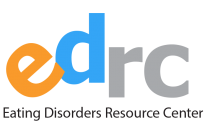CREDENTIALS/DISCIPLINE: Clinical Psychologist, PhD
BOARD CERTIFIED: Yes-Board of Psychology
Number of years treating patients with eating disorders: 20+ years
Number of patients with eating disorders I treat annually: 10-15
EDUCATION, TRAINING, and EXPERTISE: I received my PhD in Clinical Psychology from the Pacific Graduate School of Psychology (now known as Palo Alto University) in 1995 and have been a licensed psychologist since 1998. I have specialized in the treatment of individuals with eating disorders since 1998. I have attended numerous eating disorder courses and workshops over the years, been in consultation with eating disorder specialists, been part of eating disorder consultation groups, and read extensively on the subject. I have led eating disorder groups, lectured in the community, and given inservices and training to psychology students on eating disorder subjects.
TREATMENT PHILOSOPHY: Building trust through being genuine and “real” with my clients, and responding in an authentic yet warm manner, is the foundation for all my work. Trust enables clients to open up to the deep and, at times, uncomfortable truths with themselves related to eating disorder symptoms. An assessment is done to identify eating disorder behaviors and symptoms, and goals are created, to gradually replace destructive behaviors with adaptive ones. Metaprocessing, or explicitly discussing with clients what they are experiencing, as they proceed through treatment, is another important part of my treatment approach. Openly addressing how clients perceive what is going on for them, can help clients feel deeply understood, and undo painful feelings of aloneness that can arise during recovery. As some of the eating disorder behaviors become more stable, attention can be focused more on exploring the underlying issues that triggered the development of the eating disorder. The goals of treatment are to help each individual develop an experience of themselves that is worthy and secure, based on who they are on the inside, no longer depending on their body as the means to reassuring their worthiness.
FEES: Cash, Personal Checks. Accept CIGNA Insurance. If PPO, patient needs to apply for reimbursement.
INSURANCE: I do take Cigna health insurance for a limited number of my client openings.

